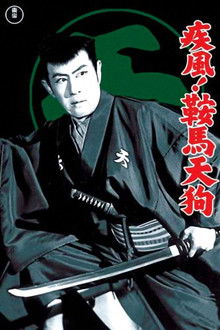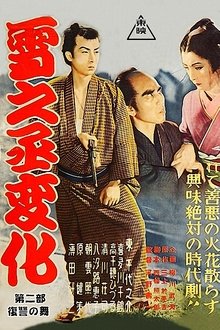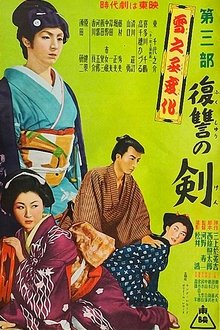Two rogue vagrants make their living as "manure men", turning the waste from the tenement toilets into fertiliser sold to local farmers. Enter Okiku, the only daughter of a fallen samurai, and amongst the overflowing piles of excrement, a well-nourished love story unfolds.
Related Movies

Banzuiin Chōbei (1940)
A jidaigeki film on Banzuiin Chōbei produced in 1940 and directed by Yasuki Chiba.

Akechi Mitsuhide: The Man God Hated (2007)
The famed leader Oda Nobunaga had two right-hand men who contributed to unifying the nation. One was Akechi Mitsuhide and the other Kinoshita Tokichiro, both rivals of each other for higher promotions. Eventually Mitsuhide was recognized for his work and was given a castle. However, Nobunaga's ambition to conquer the nation did not allow Mitsuhide to live happily in his territory. That is when an idea flashed across Mitsuhide's mind… Akechi Mitsuhide, the man who was considered to be the most intelligent general of the warring states era. What was the truth about him, Oda Nobunaga's best general and murderer?

The Man from Shimizu (1982)
On the day his mother dies, young gambler Jirocho swears in front of her grave that he'll never gamble again. But, that night, Jirocho heads to a gambling den, where he bets the condolence money for his mother's funeral. No surprise to learn he loses the lot. Not the hard-boiled yakuza story it seems, this is a comedy featuring many new artists who were making a name for themselves at the time.

The Ode to Joy (2006)
Based on the true story of the Bandō prisoner-of-war camp in World War I. It depicts the friendship of the German POWs with the director of the camp and local residents at the stage of Naruto, Tokushima Prefecture, in Japan.

Rashomon (1950)
Four people recount different versions of the story of a man's murder and the rape of his wife.
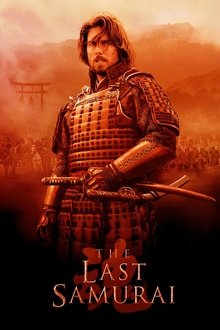
The Last Samurai (2003)
Nathan Algren is an American hired to instruct the Japanese army in the ways of modern warfare, which finds him learning to respect the samurai and the honorable principles that rule them. Pressed to destroy the samurai's way of life in the name of modernization and open trade, Algren decides to become an ultimate warrior himself and to fight for their right to exist.

A Color Print of Edo (1939)
The Color Print of Edo is a 1939 black and white Japanese silent film with benshi accompaniment directed by Kazuo Mori. It is a cheerful period drama, sprinkled with comical scenes and tells the story of a loyal and handsome Edo period servant who fights to help his older brother marry the woman he loves. The star of this film, Utaemon Ichikawa, gained enormous popularity for his portrayal of a cheerful and chivalrous man.

Tora! Tora! Tora! (1970)
In the summer of 1941, the United States and Japan seem on the brink of war after constant embargos and failed diplomacy come to no end. "Tora! Tora! Tora!", named after the code words used by the lead Japanese pilot to indicate they had surprised the Americans, covers the days leading up to the attack on Pearl Harbor, which plunged America into the Second World War.
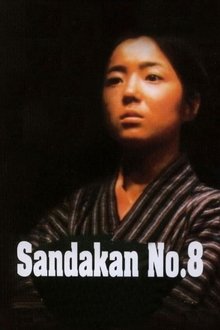
Sandakan No. 8 (1974)
A young journalist interviews an elderly woman about being forced into prostitution in Borneo at a brothel called Sandakan No. 8.
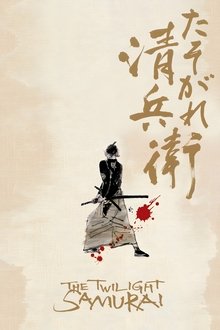
The Twilight Samurai (2002)
Seibei Iguchi leads a difficult life as a low ranking samurai at the turn of the nineteenth century. A widower with a meager income, Seibei struggles to take care of his two daughters and senile mother. New prospects seem to open up when the beautiful Tomoe, a childhood friend, comes back into he and his daughters' life, but as the Japanese feudal system unravels, Seibei is still bound by the code of honor of the samurai and by his own sense of social precedence. How can he find a way to do what is best for those he loves?

Sweet Rain: Accuracy of Death (2008)
Chiba appears seven days before a person dies an unexpected death. His job is to observe the person for seven days then decide either to ‘execute’ or ‘pass over’. Today, again, in the rain, he waits. His subject, her death due in seven days, is Kazue Fujiki. She works for a manufacturing company in the complaints department. Exhausted after her day, she emerges from her office. It’s time for the Reaper to go to work.
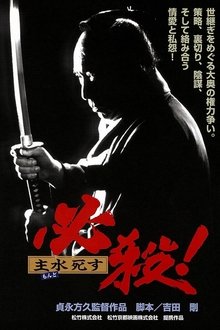
Sure Death 6 (1996)
When an artist dies, the official cause of death is judged to be a stroke, but his daughter suspects foul play. She recruits the services of an assassin, who by chance encounters an old friend...

Gung Ho (1986)
When a western Pennsylvania auto plant is acquired by a Japanese company, brokering auto worker Hunt Stevenson faces the tricky challenge of mediating the assimilation of two clashing corporate cultures. At one end is the Japanese plant manager and the sycophant who is angling for his position. At the other, a number of disgruntled long-time union members struggle with the new exigencies of Japanese quality control.

Dead or Alive 2: Birds (2000)
Two contract killers cross paths in the middle of the same job and realize they are childhood friends. Together they take a break from killing and visit the small island they once called home. After reflecting on their past lives they decided to team up and use their talents in killing for good... much to the upset of the crime syndicates.
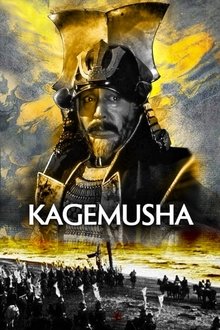
Kagemusha (1980)
Akira Kurosawa's lauded feudal epic presents the tale of a petty thief who is recruited to impersonate Shingen, an aging warlord, in order to avoid attacks by competing clans. When Shingen dies, his generals reluctantly agree to have the impostor take over as the powerful ruler. He soon begins to appreciate life as Shingen, but his commitment to the role is tested when he must lead his troops into battle against the forces of a rival warlord.

Crows Zero (2007)
The students of Suzuran High compete for the King of School title. An ex-graduate yakuza is sent to kill the son of a criminal group, but he can't make himself do it as he reminds him of his youth.

